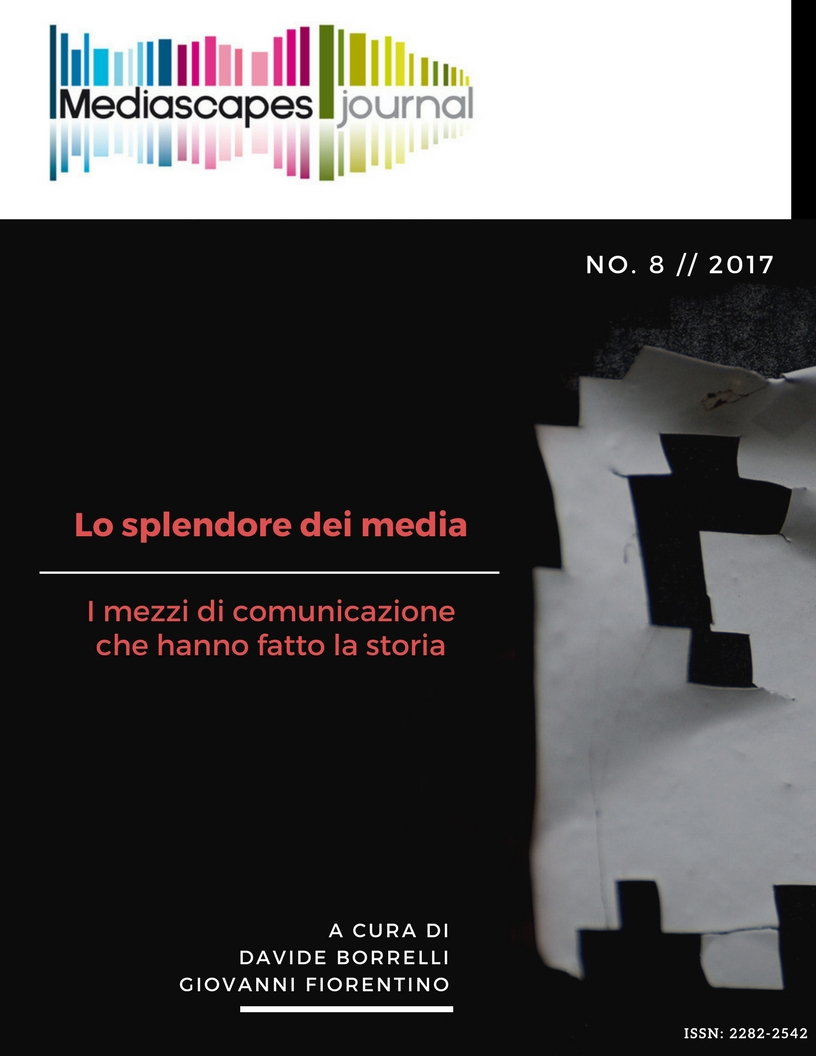Open data e civic hacking: pratiche per una cultura del governo aperto
Abstract
Open data are key-tools for open government strategy. In Italy, from the so-called Codice dell’Amministrazione Digitale (2005) to the Freedom of Information Act (2016), the regulatory framework on open data has started offering precious resources for transparency, participation, and collaboration. Yet, along with regulatory innovations, open government and open data strategies require a renewed civic culture in action, new ways to become citizens and to act as citizens. Civic hacking – through practices that stimulate public data’s transparency, openness, and reuse – provides a privileged observatory on the new forms of citizenship in the heterogeneous contexts of open government. The study described in this article explored, in 2015, the practices of civic hacking developed in Italy by data-journalists and active citizens, analysing the civic culture that was in action through these practices. Drawing upon Dahlgren’s analytical framework of civic cultures, the exploratory study aimed to understand what kind of civic knowledge, values, trust, and identity was embodied in the practices of the Italian civic hackers and what kind of space enabled these practices. In order to contact civic hackers, who could give sense to these actions, disclosing – through qualitative interviews – their cultural resources, the study employed the online channels of three Italian communities engaged in open data and digital innovation – as suggested by “key-informants”. The interviewees discussed practices of civic hacking orientated toward transparency and accountability, in order to “hack” the Italian Public Administration, still “closed”, despite the available norms. Few practices, among the ones reported by the interviewees, re-used open data and shared them, encouraging logics of participation and collaboration. The civic culture that drives these practices is built on a mix of knowledge and skills, values that are typical of hacker ethic, experienced in remote and physical spaces. The interviewees feel to be able to make a difference in the Italian public sector organizations, in concert with other civic hackers. This exploratory study opens research paths on the vitality and the transformation of civic hacking in the renewed Italian regulatory framework on open data.
##submission.downloads##
Pubblicato
Come citare
Fascicolo
Sezione
Licenza
Gli autori che pubblicano su questa rivista accettano le seguenti condizioni:
- Gli autori mantengono i diritti sulla loro opera e cedono alla rivista il diritto di prima pubblicazione dell'opera, contemporaneamente licenziata sotto una Licenza Creative Commons - Attribuzione che permette ad altri di condividere l'opera indicando la paternità intellettuale e la prima pubblicazione su questa rivista.
- Gli autori possono aderire ad altri accordi di licenza non esclusiva per la distribuzione della versione dell'opera pubblicata (es. depositarla in un archivio istituzionale o pubblicarla in una monografia), a patto di indicare che la prima pubblicazione è avvenuta su questa rivista.
- Gli autori possono diffondere la loro opera online (es. in repository istituzionali o nel loro sito web) prima e durante il processo di submission, poiché può portare a scambi produttivi e aumentare le citazioni dell'opera pubblicata (Vedi The Effect of Open Access).


